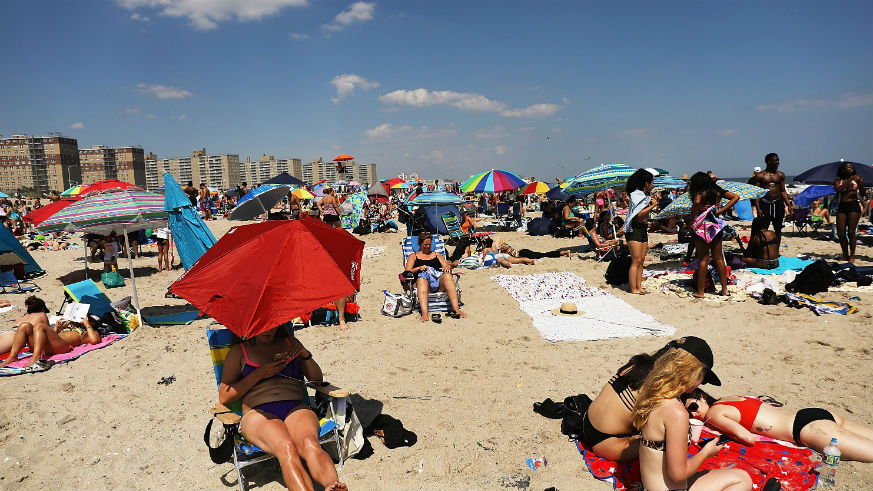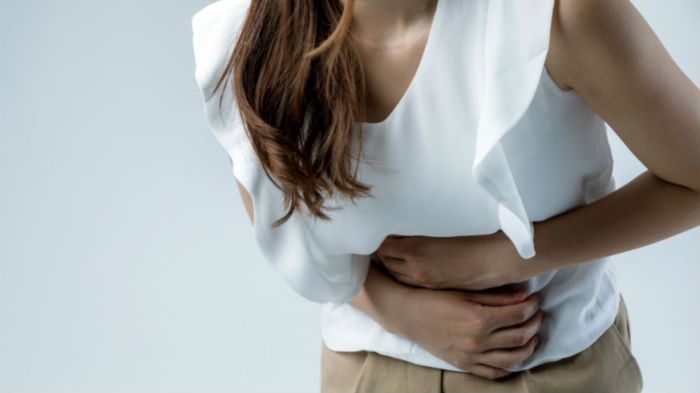Summer may be less than a month old, but we are already feeling the heat — a lot of fit. We talked to Dr. Elizabeth Garland, director of the Division of Preventive Medicine and Community Health and associate professor, environmental medicine and public health, pediatrics, Icahn School of Medicine at Mount Sinai Health System, about how to stay healthy and safe when the mercury rises.
What is a heat wave?
A heat wave can be defined as a period of, usually, three to five or more consecutive days with uncomfortably hot weather (around 90 degrees Fahrenheit).
Does the temperature have to be heatwave-level to be dangerous?
While the temperature may not be at heatwave-level, it may still be dangerous due to the humidity. The combination of temperature and humidity is called the heat index — which describes how the temperature feels to our bodies. In general, humidity amplifies hot weather- making outside feel hotter than reported.
What causes humidity? Why does it make us so uncomfortable?
Humidity is essentially the amount of water vapor in the air. We are uncomfortable when it’s humid because our bodies cannot cool off how they are meant to. Normally, the human body cools off by sweating, but when it is humid, because the air is already saturated with water the sweat (water) on our skin cannot evaporate and so we don’t cool down.
Why is the air quality so much worse during hotter months?
Air quality tends to be worse during the summer months due to the presence of photochemical oxidants, emissions and particulate matter in a more stable atmosphere, creating stagnant air. The higher temperatures and ultraviolet radiation are breaking down more ozone in the air during this season, and emissions enter the air from cars, trucks, planes, and power plants, for example. There also tends to be higher concentrations of particulate matter in the air during the summer months.
What can you do to protect yourself against pollution in summer?
To protect against pollution, avoid being outdoors and exercising at times of day when and where particl- pollution levels are generally high. This includes morning and evening rush hour, locations along busy roadways and times when there is smoke in the air from wood stoves, fireplaces or forest fires. On the occasional days when ozone and particle-pollution levels are extremely high all day, it may be prudent to avoid or reduce the intensity or duration of exercise. Physical activity in the morning is beneficial because ozone levels are lower. Ozone levels tend to rise throughout the day because sunlight makes ozone pollution worse.
What diseases or illnesses are linked to bad air quality?
People with chronic cardiac and lung diseases, such as asthma and chronic obstructive pulmonary disease (COPD), as well as the very old and very young are more susceptible to high levels of ozone air pollution. Ozone is a known trigger for asthma exacerbations. Mortality rates are generally higher on days when ozone concentrations are high than when they are low. Particulate air pollution is associated with increased daily mortality and with adverse events in patients with underlying cardiovascular disease.
In addition, the health effects of air pollution exposure on children start prenatally, with increased risk for preterm birth and low birth weight and continue into childhood with increased susceptibility to respiratory viral infections and higher risk of developing asthma as well as poorer control of asthma. Higher exposure to outdoor air pollution has also been associated with poorer cognitive development and lower IQ, an effect that may disproportionately affect poorer children. Air pollution exposure has also been associated with increased risk high blood pressure, obesity and insulin resistance (increasing the risk for type 2 diabetes) in adolescents — all of which contribute to poorer health throughout life.
Do air purifiers help?
Air purifiers are useful for trapping harmful particles, like dust, bacteria, and other exhausts from the air. They are not as helpful when dealing with chemical (gas) pollutants like ozone, as these are more difficult to trap in filters.
What are effective ways of cooling down?
Staying well hydrated (around 11 cups of fluids for women and 13 fluids of water for men — including food and other beverages like coffee and tea), wearing lightweight cotton clothing, avoiding dark colors (as these are more likely to reflect the sun’s rays) and eating small meals regularly because your body warms up as it works to process larger meals. Metabolic heat is needed to break down food, so eating smaller portions can help you keep cool. You can also keep blinds and curtains closed in your home during the day as a preventive measure to stop your rooms from overheating.
What is an ideal indoor temperature?
Most would agree that an ideal indoor temperature should be anywhere in between 70 and 78 degrees Fahrenheit.
What are the signs of illness from pollution and heat? What should you do if you notice them?
Signs of heat exhaustion include: pale skin, excessive sweating and disorientation. Signs of heat stroke include: high body temperature with no sweating, and an intense headache. Signs of pollution related illness can include, wheezing, coughing, shortness of breath, chest pain, chest tightness, dry throat, and fatigue. If you witness someone experiencing these symptoms, call 911 or assist them in getting medical attention.

























